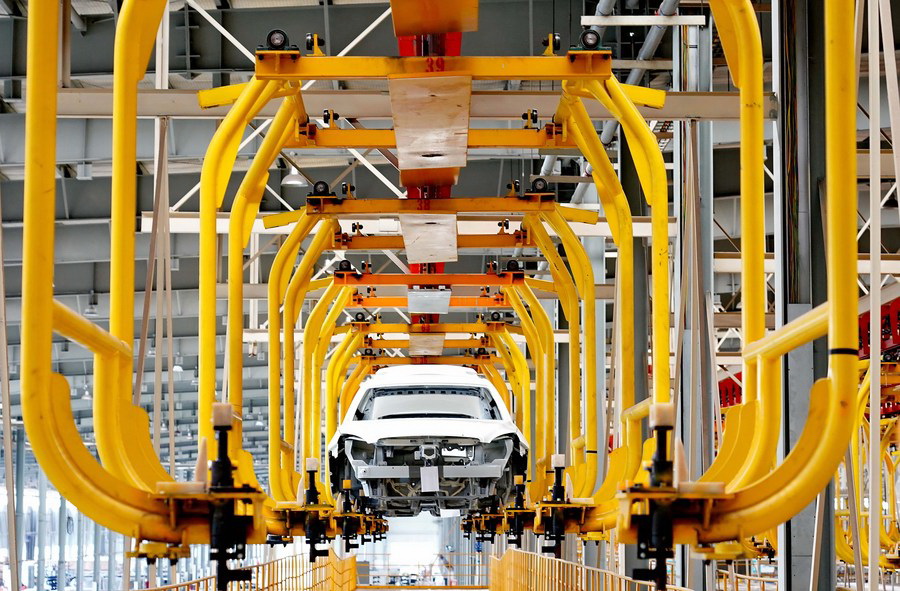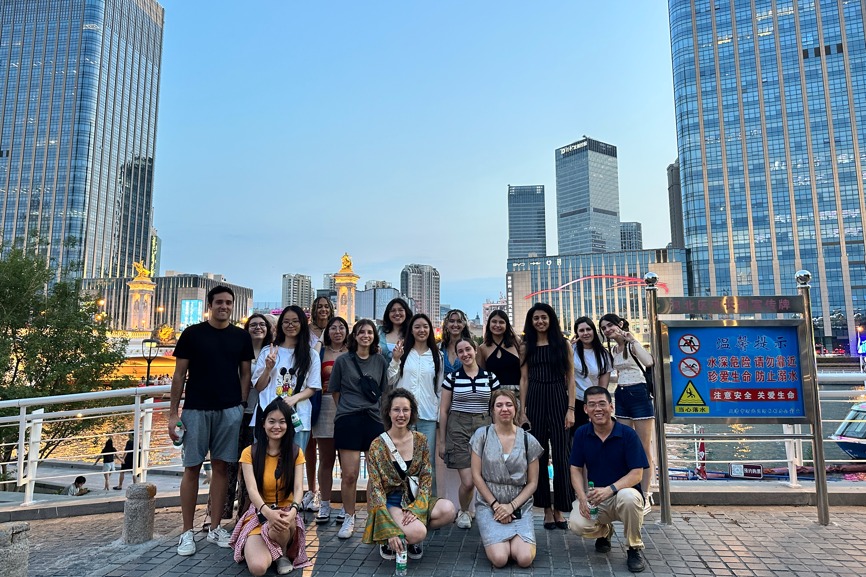Belt and Road companies agree to improve integrity


Companies involved in the Belt and Road Initiative have committed themselves to improving integrity and compliance management, strictly abiding by laws and fulfilling social responsibilities.
More than 60 companies involved in BRI construction made the commitments at a recent seminar in Beijing held by the National Supervisory Commission, the International Anti-Corruption Academy, the Asian Infrastructure Investment Bank and Tsinghua University with the aim of showing them how to become cleaner, more transparent and better at risk prevention when doing business abroad.
A proposal for the 14th Five-Year Plan (2021-25), which was unveiled late last month, urged more high-level opening-up and high-quality development of the Belt and Road Initiative, a global infrastructure and trade project proposed by the Chinese government in 2013 that involves more than 100 countries and regions around the world.
So far, the BRI has shown great vitality and resilience, according to data from the commission. Despite the COVID-19 pandemic, China's nonfinancial outbound direct investment to BRI projects still recorded $13 billion from January to September, a year-on-year increase of 29.7 percent.
Lu Xi, a commissioner of the National Supervisory Commission, said building a "clean Silk Road" has become an important part of the BRI. At the past two Belt and Road Forums for International Cooperation, President Xi Jinping emphasized the need to tackle corruption by adopting a zero-tolerance approach and strengthening international cooperation.
The Chinese government has also worked hard to create a fair and transparent climate for business by reducing taxes, formulating and amending laws and regulations on foreign investment and competition and signing more than 100 extradition and judicial assistance treaties as well as a dozen anti-corruption cooperation memorandums, she said.
However, according to Guo Yong, director of the Research Center for Anti-Corruption and Governance at Tsinghua University, enterprises, the main participants in the BRI, face prominent challenges in doing business abroad due to international economic pressure and the pandemic.
Guo said some Chinese enterprises lack enough understanding of other countries' customs, and their domestic supervision and regulatory methods do not always adapt to those of foreign countries. The cultural differences often lead to inadequate knowledge of other countries' regulatory policies, as well as differences in business risk and management.
To solve the problems, Guo proposed building a comprehensive indicator system to help companies develop guidelines to promote integrity and compliance.
He said enterprises should also set up independent and professional compliance management teams to improve practical working methods and their use of information, especially by applying big data to internal risk prevention and control.
John Brandolino, director of the United Nations Office on Drugs and Crime's division for treaty affairs, said companies need to strive for transparency, accountability, fairness and good governance, especially at a time when the global community needs to work together as the pandemic continues.
He said the BRI, with its five pillars-policy coordination, facilities connectivity, unimpeded trade, financial integration and people-to-people exchanges-is an important cooperation initiative to accelerate efforts to achieve the Sustainable Development Goals adopted by all UN members in 2015.
"We stand ready to support the government of China and Chinese enterprises in capacity and governance building under the Belt and Road Initiative, and in achieving common development and prosperity with other member states, anchored in the 2030 Agenda for Sustainable Development," Brandolino said.
- Nation boosts global AI governance
- Former nuclear base keeps pioneering spirit alive
- China activates emergency response for flood control in Beijing
- China expands low-orbit internet network with new launch
- AI can help create global citizens, intl English educators say
- Math labs unveiled in 2025 World AI conference





































